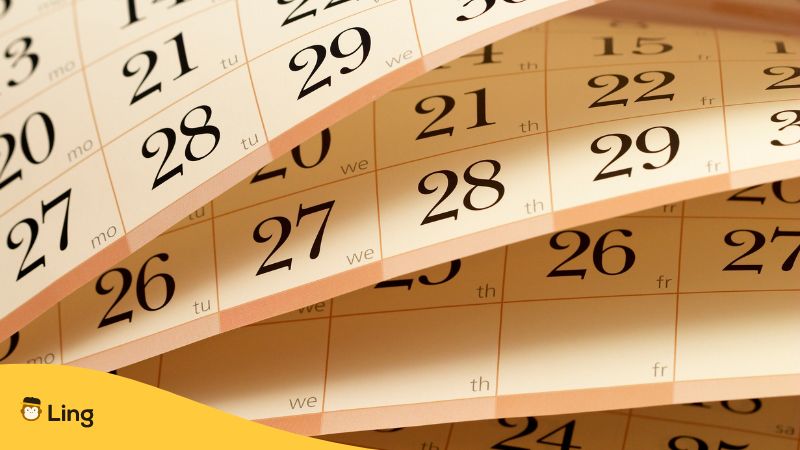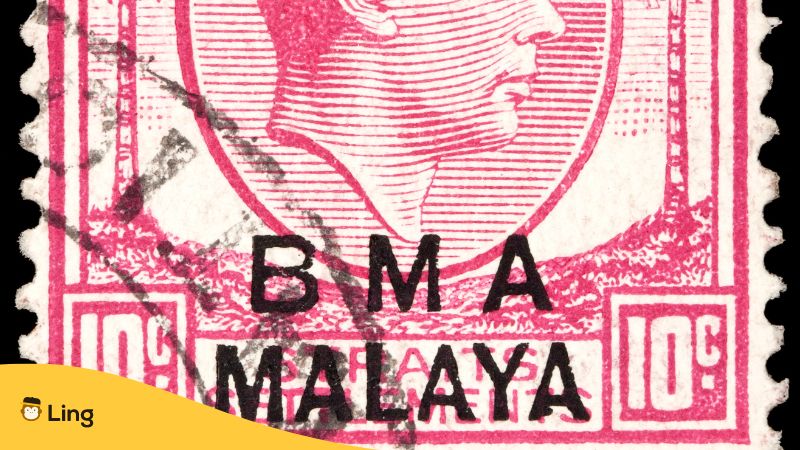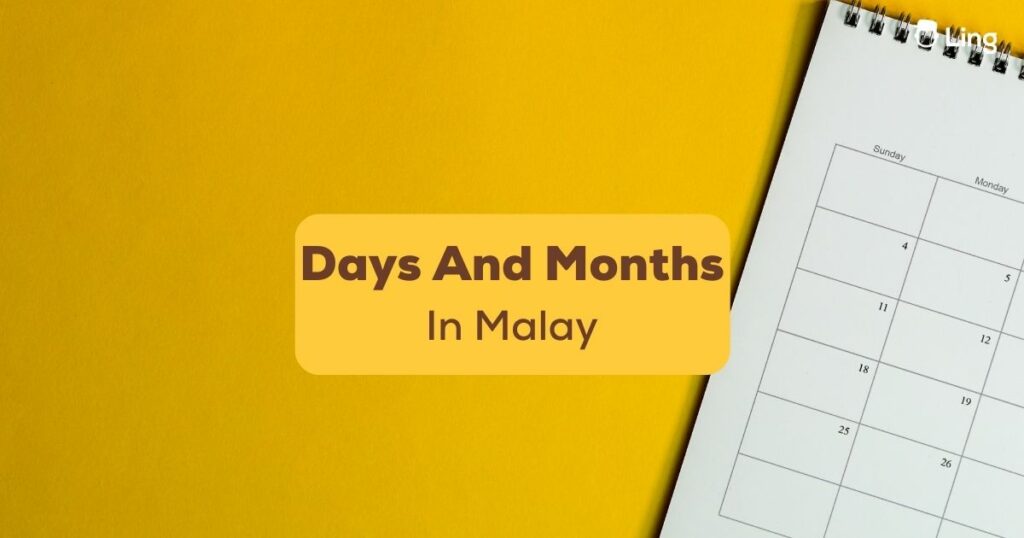When one learns the Malay language, they will undoubtedly come to the point where they have to learn the days of the week and the names of months in Malay. Then, of course, you will need to understand what “Saturday” is to continue your Malay language education!
Today, we’re covering the days of the week and the names of months in Malay! Join us as we talk about the Malay equivalent of the Gregorian calendar, learn what they call the days of the week, and even talk about some notable dates in Malaysian culture.
It’s going to be so exciting! Let’s get started…
Malay Days And Months – Monday To Sunday, January To December

Right off the bat, we’re going to look at how Malay people name their week. For example, they have different names for Monday to Sunday, which will be listed below:
Days Of The Week In The Malay Language
Now, let’s list down the days of the week, translated into Malay. We’ll give you the English day on the left and the Malay equivalent on the right.
| English | Malay |
| Monday | Isnin |
| Tuesday | Selasa |
| Wednesday | Rabu |
| Thursday | Khamis |
| Friday | Jumaat |
| Saturday | Sabtu |
| Sunday | Ahad |
Where Did Malay Days Come From

The Gregorian calendar is used by most of the world to tell the day of the week. Monday to Sunday was derived from Germanic and Roman traditions. However, in Malay, the name for the days of the week was taken from the Arabic tradition.
Islamic days are numbered as they are from the Arabic numeral system. And since the Malay language has been influenced by Arabic, the names for the days of the week ended up quite similar!
Here is a list of the Malay days of the week and their Arabic origins:
| English | Malay | Arabic |
| Monday | Isnin | ithinin |
| Tuesday | Selasa | thalatha |
| Wednesday | Rabu | arba’a |
| Thursday | Khamis | khamsa |
| Friday | Jumaat | yaum al-arba’a |
| Saturday | Sabtu | saba’a |
| Sunday | Ahad | ahad |
Months Of The Year In Malay
Now, let’s get to the months of the year in Malay! You’ll find that the names of these months are close to their English counterparts, and there’s a reason for that as well! But first, we need to know what the names of the months are…
| English | Malay |
| January | Januari |
| February | Februari |
| March | Mac |
| April | April |
| May | Mei |
| June | Jun |
| July | Julai |
| August | Ogos |
| September | September |
| October | Oktober |
| November | November |
| December | Disember |
Why Malaysia Uses English Names For The Months In A Year

The months in Malaysia, like in many other countries, are named in English due to the country’s history of colonization. Malaysia was a British colony for over a hundred years. During this time, the British introduced the Gregorian calendar and its associated month names, which are used in English.
Even after Malaysia gained independence, the country continued to use the English month names as part of its inherited colonial legacy due to the widespread use of English in the country. As a result, English remains an essential language in Malaysia and is used in education, business, government, and of course, month names!
Important Days And Months In Malaysia

Here’s a bonus: we’ll tell you all about Malaysia’s most important days, months, and holidays! So keep this handy guide to know when to time your travel dates.
Keep in mind: modern Malaysia is culturally diverse, with Malays, Chinese, Indians, and indigenous groups all bringing unique holidays and celebrations.
Hari Merdeka
Hari Merdeka is Malaysia’s Independence Day, which falls on the thirty-first of August. It celebrates the end of British colonial rule in 1967. Interestingly, the word merdeka is derived from the Sanskrit term maharddhika, which means “powerful, prosperous, and rich.”
Hari Raya Aidilfitiri
This holiday marks the end of Ramadan, the month of feasting. It is celebrated nationwide as a two-day holiday. This day sees Malaysian Muslims heading to the mosque early in the morning and hosting open houses where neighbors and friends are invited to celebrate and eat!
Hari Raya Aidiladha
The Feast of the Sacrifice is celebrated by all Muslims worldwide to commemorate the willingness of Prophet Ibrahim to sacrifice his own son to Allah. It is marked by early morning prayer and then a slaughter of the sacrifice: sheep, cow, or goat.
Chinese New Year
Also celebrated worldwide, Malaysia celebrates Chinese New Year, usually around late January or early February. Families typically attend a reunion dinner on New Year’s Eve, and children receive red envelopes filled with money from their elders!
Deepavali
Deepavali is observed by Malay Hindus. Known as the festival of lights, Hindus set lights all over their homes to represent the victory of light over darkness, good over evil, and knowledge over ignorance. Likewise, Hindus would go to their temples to cleanse themselves of sin.
Gawai Dayak
Also known as Hari Dayak, this festival is important to the Dayak communities of Malaysia and Indonesia. It is traditionally celebrated on the first of June to mark the end of the rice-harvesting season.
Thaipusam
Known as one of the most shocking festivals in the world, Thaipusam is celebrated during the full moon in January or February. Hindu devotees to the god Murugan pierce themselves with hooks to hang pots on their chests, get pulled by chariots, and more.
Get A Real Malay Lesson With The Ling App

Now that you know the words to use when talking about the time of the month, you’re ready to take your education to the next level! Pick up your next Malay lesson with the Ling app!
Get page after page of well-thought language lessons in Malay and over 60 languages with the Ling App. Created with the help of native speakers and educators, we’ve developed lessons that can help anyone at any level of learning: from beginners to experts.
Start learning now by downloading the Ling app for iOS or Android.



































































